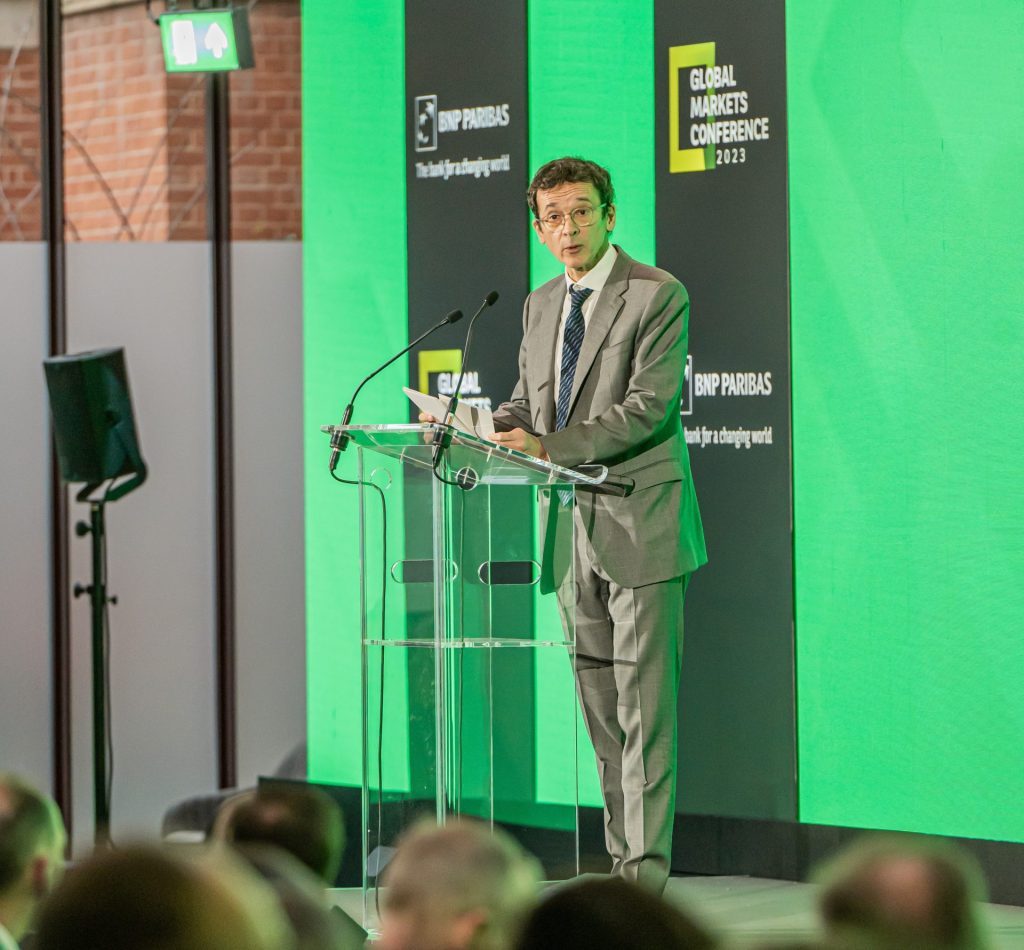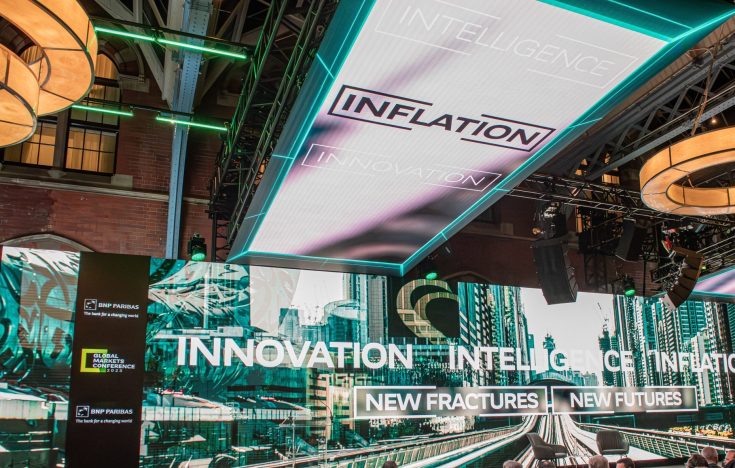Leaders and experts drawn from across politics, sustainability, financial services and technology gathered for the seventh annual BNP Paribas Global Markets Conference in London on November 16th. This year’s conference was themed ‘New Fractures, New Futures’, to reflect the fragmenting geopolitical outlook, and the challenges and opportunities ahead for markets.

New fractures
At this year’s conference, the tone on geopolitics and security was remarkably downbeat. The war in Ukraine continues, while some speakers were concerned the conflict in the Middle East has the potential to spiral into a regional war. Other speakers noted US China relations remain challenging, raising concerns for the global economic outlook.
While fears that the Middle East conflict would spark a global economic downturn have not materialised, a speaker noted oil prices are only staying steady because the crisis has so far been contained. Should the hostilities morph into a regional conflict, then the price of oil will rise, resulting in a jump in inflation and higher interest rates, they continued.
Inflation
Although inflation is currently trending downwards, experts at the conference were divided about whether the worst is behind us or not.
One asset manager said supply has not just caught up with demand, but there is currently over-supply, which is causing disinflation. However, others warn that deglobalisation, rising wage costs, and the green premium, associated with achieving net zero, will add to longer-term inflationary pressures.
On the idea of inflation returning to normal levels, an investment manager said that the decade leading up to the pandemic was anything but normal in economic terms, as it was dominated by Central Bank bond buying programmes and negative interest rates.
Calls in some quarters for the European Central Bank (ECB) to increase its inflation target from 2% were rejected outright by a speaker, who argued such arbitrary changes would risk undermining the ECB’s credibility.
New futures: Innovation
Ever since the release of Chat GPT, generative AI has taken the world by storm. According to one speaker, Large Language Models (LLMs) aside, AI simulation is expected to have a seismic impact on corporate R&D.
Simulation is when AI is used to comb through vast data troves, thereby expediting the discovery process, enabling companies to manufacture and release products more quickly and efficiently. A leading expert in AI said that computational power, facilitated by advances in chip design and technology, is now so great that an aerospace company could potentially calculate and create – at scale and in good time – a new metal alloy to develop a plane that can be flown at supersonic speed. Despite these advances, the technologist said many large companies are not yet fully capitalising on AI’s capabilities.
Although AI could be transformative for many industries, the technology is not without its risks. Just as AI could discover revolutionary medical drugs, some warn it could pose a dramatic threat to humanity, especially if it was used by bad actors.
The AI experts at the conference said such fears are hyperbole, but conceded the technology is not risk free, and could be exploited for example by cyber-criminals to write better quality spear-phishing emails, identify patterns in password files or even imitate people’s voices.
Another key innovation theme was around sustainability, where inroads are being made, the conference heard. One politician noted the UK currently gets 40% of its electricity from renewables, and now has the third largest renewables industry in Europe, after Germany and Norway.
Some fossil-dependent nations have also started to embrace sustainability, according to speakers. Massive investments are being made to prepare a low carbon future by developing the non-oil economy.
Transitioning to net zero is fraught with complications, especially as some markets are going at a slower rate than others. Whereas the EU is committed to achieving net zero, transitioning while remaining competitive will be a major challenge in European countries, a speaker argued.
In the US, while the Inflation Reduction Act has attracted investors to support the acceleration of clean energy and transportation, one speaker commented there are limited incentives for other industries to reduce their carbon emissions.
Attended in person by over 650 of the bank’s institutional and corporate clients, BNP Paribas’ Global Markets Conference was an excellent opportunity for colleagues and clients to both re-connect and gain invaluable insights into some of the main dynamics influencing geopolitics and capital markets today.
